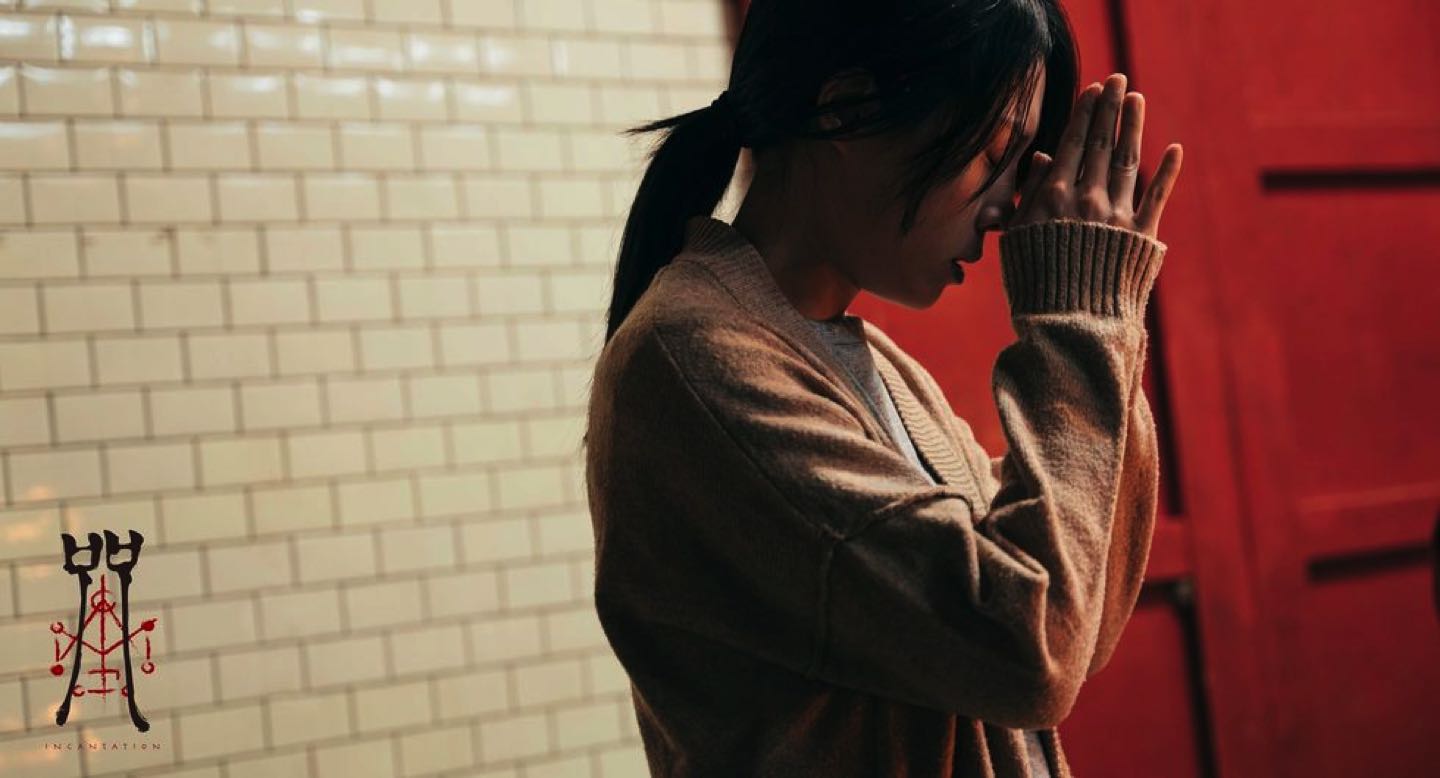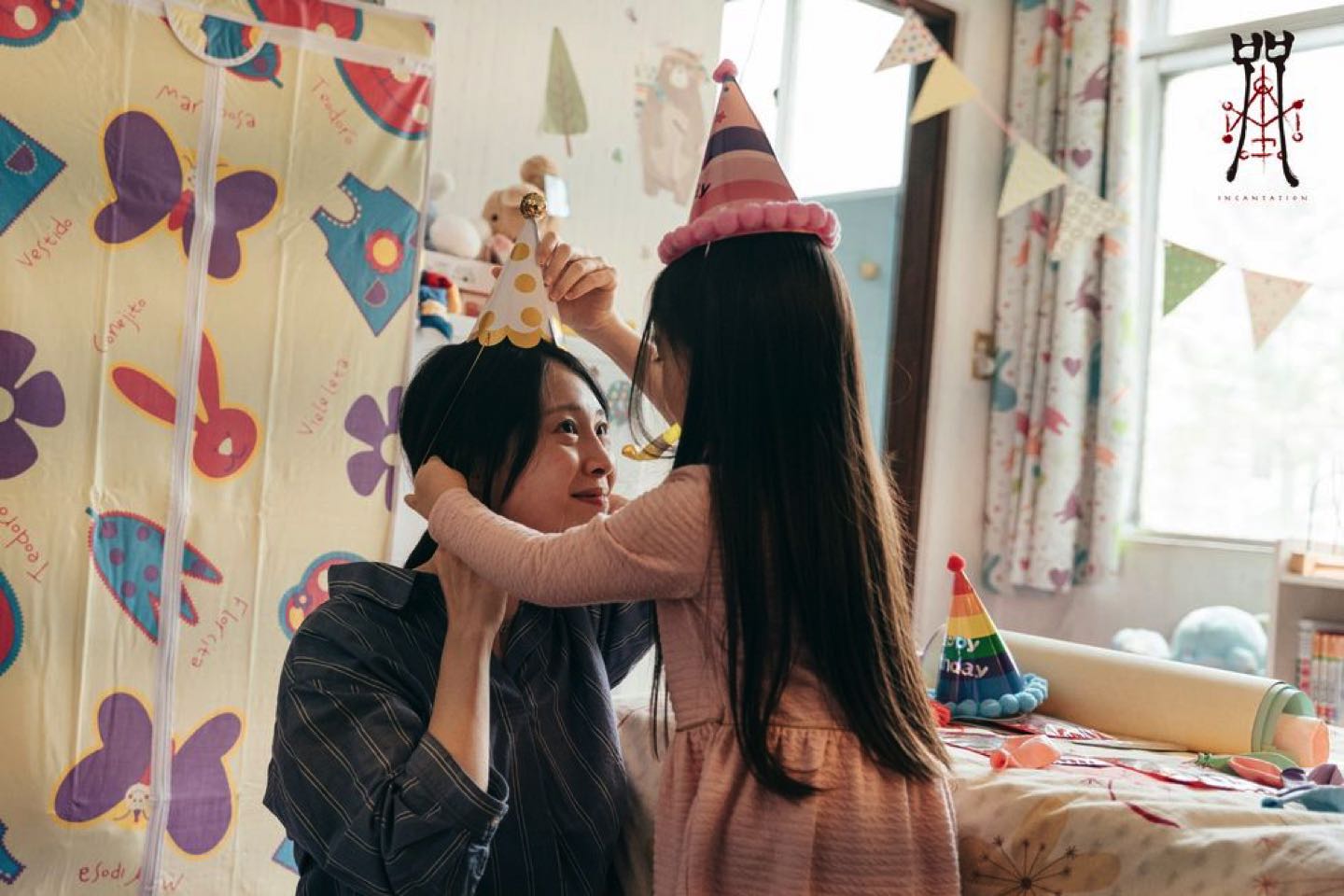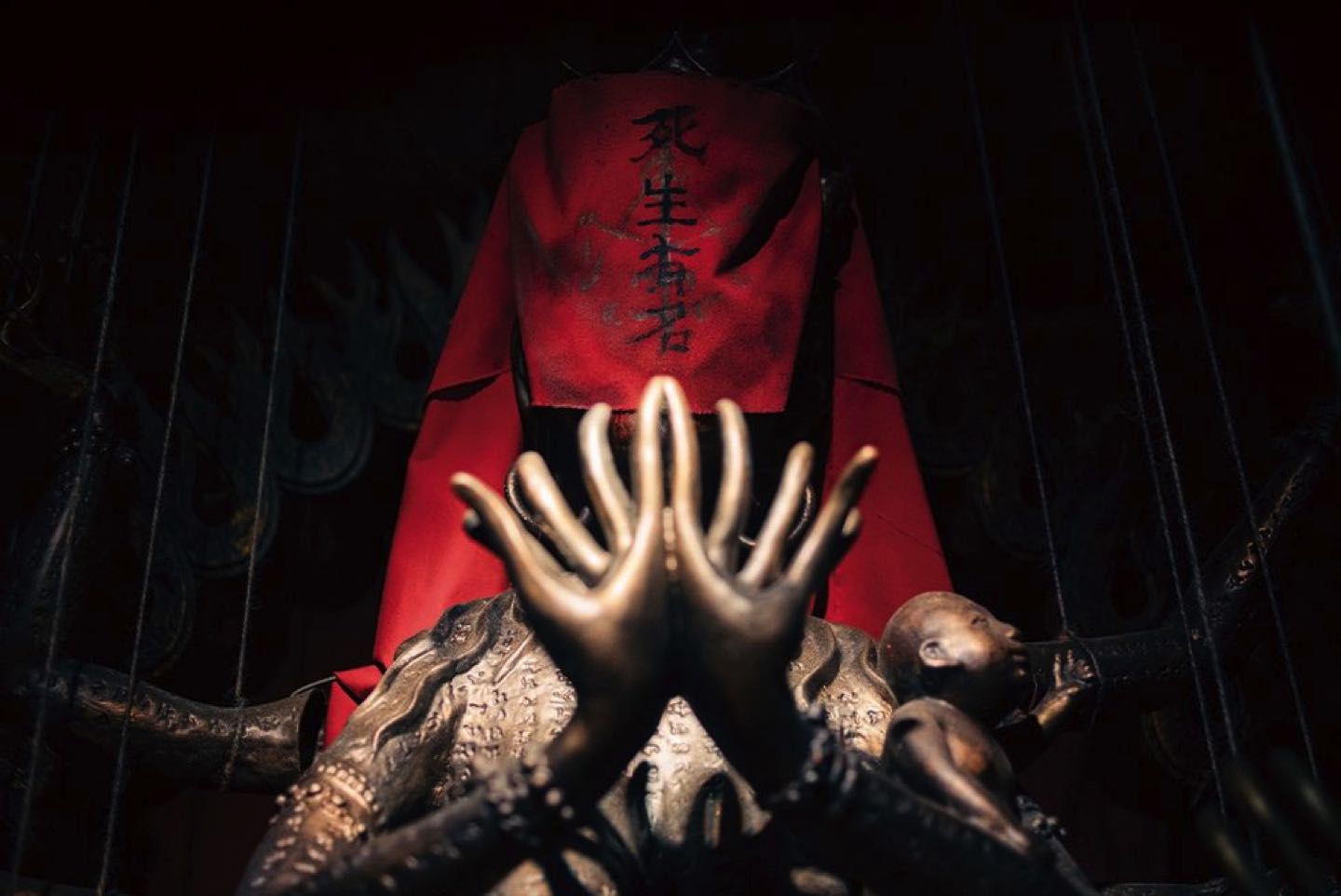by Brian Hioe
語言:
English
Photo courtesy of Incantation
This is a No Man is an Island film review written in collaboration with Cinema Escapist as part of coverage of the 2022 Neuchâtel International Fantastic Film Festival. Keep an eye out for more!
INCANTATION IS THE latest Taiwanese film to try bridging traditionally Taiwanese elements with contemporary horror (other recent examples include 2019 hit Detention). The film has been highly successful at the box office, becoming the highest-grossing Taiwanese movie of 2022 thus far. In fact, the film’s distributors tout it as being the highest-grossing Taiwanese horror movie of all time; the film made 23 million NT in its first three days in theaters. It may not be surprising, then, that Netflix will soon distribute Incantation internationally.
Nevertheless, Incantation ultimately proves a flawed work. The film’s horror elements are primarily derivative and reliant on shock, rather than any more nuanced or subtle sense of dread that would have ultimately made it a scarier work.

Photo courtesy of Incantation
Incantation follows Ruo-nan, a young mother, and her daughter Duo-duo. Duo-duo shows many of the signs of possession, sometimes appearing to hear mysterious voices, or being prone to inexplicable behavior. As it transpires, Ruo-nan and her daughter’s troubles began due to Ruo-nan and her boyfriend making a YouTube video some years prior, in which the couple sought to document a religious ritual carried out by her boyfriend’s family. Violating the taboos of the religious ceremony led the family to be cursed, with Ruo-nan’s boyfriend dying as a consequence. The pregnant Ruo-nan and her child survived, but remained cursed.
Scenes in Incantation meant to inspire dread often occur through a first-person perspective, sometimes with a transition to the viewpoint of a character, or the use of what is framed as video camera footage. These scenes are among the most effective. However, the film is too reliant on gore for shock value. Though its images may scare, particularly in a movie theater, the effect can be schlocky. Likewise, the film’s horror elements draw from contemporary horror films’ frequent usage of found footage, supernaturally possessed children, or other tropes.
Where the film’s story is concerned, Ruo-nan’s conflicted relationship with her daughter is supposed to provide the movie’s emotional core. Ruo-nan is depicted as a troubled, sometimes harmful mother. Due to the effects of the curse, Ruo-nan is seen by others as an abusive parent. But while the film could have elaborated on this point to flesh out her character, this ultimately only serves as a device to awkwardly advance the plot.
Other characters, such as Ruo-nan’s boyfriend and his family, are undeveloped. As such, the audience is given few reasons to emotionally invest in any of them, before they are caught up in a series of supernatural events beyond their control. It is not clear why the couple is so intent on violating religious tradition for viral fame with their YouTube channel.
Taiwanese horror films have sought to play up elements drawn from traditional Taiwanese religion or contemporary urban legends in recent years. This has particularly been the case after the success of the Tag-Along franchise, which drew from both sources.
So, too, with Incantation. The film purports to be based on a contemporary religious possession incident in Kaohsiung, in which a family of six became possessed by various deities, and survived off of nothing but water mixed with ashes for a month. But despite this branding, the film has little to do with its source material. To this extent, elements drawn from traditional Taiwanese religion are not too memorable or unique, except for the use of Buddhist imagery and chants, some of which are in Taiwanese Hokkien.

Photo courtesy of Incantation
Though flawed, Incantation is not without its merits. The film’s most unique element may be the fact that it begins with the protagonist addressing viewers and instructing them to recite a charm, while memorizing a religious symbol. This plot element returns at the film’s conclusion, serving as a creative breaking of the fourth wall.
At the same time, the film proves forgettable because of its overuse of what by now are trite elements in the horror genre. The ingredients for what could prove a memorable, even innovative horror movie are there, but their overall combination simply does not cohere. Incantation might interest those who have enjoyed contemporary Taiwanese horror in recent years but, even with its smattering of technically well-executed scenes, it probably doesn’t require more than one watch.



